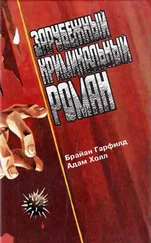The flight was just over eleven hundred miles and would stretch the fuel capacities of the transports, even with their extra tanks. It was a shade more than an eight-hour jump with the bombers restricted to the cruising speed of the Dakotas and De Havillands. They made landfall at seven-fifteen.
PART SIX:
November—December 1941
At seven thousand feet Felix watched a thick layer of stratus coming up beneath the wings; then he was inside it and flying blind, concentrating on instruments.
The chart was printed in mauve ink for easy reading under the cockpit lights. Ulyanov said, “We must be in range of their tower radio by now.”
“Whistle them up then.”
Felix was sweating. Suppose the weather was socked in right down to the ground?
“…Tower. We understand you clearly. Conditions for landing are as follows. Cloud ceiling is at two thousand five hundred meters. Ground visibility is five kilometers or better. We are illuminating both sides of the runway with fire tins. We have a heavy snow lie but the runway has been plowed. Nevertheless ground temperature is minus four degrees centigrade and you must be on guard against thin patches of ice on the runway. This is understood?”
Concentrating on his instruments Felix only nodded and Ulyanov said into the radio, “Visitor flight understands, Kuvola Tower.”
Felix dimmed the cockpit lights to a minimum glow and switched on his landing lights. Snowflakes flashed past thickly in horizontal lines like tracer bullets. The high-wattage beams sliced forward through the snow and a grey tunnel formed behind each whirling propellor. He rubbed misty condensation from the glass and asked Ulyanov if he would care to predict how far off course they would be when they came out under the clouds. Ulyanov said, “I would be guessing, Highness.”
“Guess, then.”
They were out of the snow then but still in cloud and still descending on steady rails through three thousand feet, twenty-five hundred, two thousand. “I think we’re right on the mark, Highness.”
“We’d better be. You’ve been doing the navigating.”
“Yes Highness.”
The altimeter was a dial with a long hand and a short hand like the face of a clock: one for thousands, one for hundreds. The long hand was winding steadily around the dial: nine, eight, seven. The cone beams stabbed ahead and down and were absorbed in the murk. Six, five, and still in clouds. “High air pressure,” Felix said. “The altimeter’s off—keep your eyes open. Gear down—flaps twenty.”
“Kuvola Tower to Visitor flight. We can hear you. You should have us in sight momentarily. Over.”
The altimeter read 1,350 when she broke through under the dark cloud bellies. Ahead and a tack to the right he saw the twin rows of fires stretching toward a single point in perspective. He threw the bomber into a bank and sideslid across the sky to lose altitude. “Flaps forty.”
“Forty?”
“You heard me.” He wanted to hit low and slow; he wanted to touch down right at the near edge of the strip because if there was patch-ice on the tarmac he’d need every foot of space. “Flaps fifty.”
Five hundred feet and the lights were less than a mile ahead. He pushed the nose down and cut power back. “Maximum flaps now, Ulyanov.”
“Yes sir.”
“Tower to Visitor One. You’re coming in low.”
“Visitor to Tower. Any ground obstacles in my way?”
“Tower to Visitor. You are flying over a forest. Tallest trees fifteen to eighteen meters to within forty meters of runway.”
He leveled off when the altimeter read 250; he had to assume it gave him at least a hundred feet of ground clearance. The trees were quite clear under the landing lights now and he could distinguish the individual lights on the landing field—five-gallon drums full of sand soaked with gasoline and afire.
Ninety-five knots. She barely had airway. Pull the nose up even a fraction now and she’d stall dead. But he didn’t want to have to use his brakes any more than he had to. The last tree flashed underneath and he shoved the nose down and held it there for an agonizing eternity and cut the power and hauled the yoke back into his lap and she stalled out just where she was supposed to: came down very hard on her wheels and bounced ten feet in the air and settled down on three points. Felix put his concentration into steering her down the tarmac. She was still making eighty knots and he touched the brakes experimentally: felt them take purchase and stood lightly on them, slowing smoothly.
When she was down to taxi-maneuver speed he still had a quarter of the runway ahead of him and it pleased him. He turned toward the verge and followed the escort van toward the hardstands. Ulyanov said, “My congratulations, Highness.”
“Thank you.”
“You did that exactly as if she were a light craft.”
Ulyanov switched off and they untangled themselves from their equipment and climbed down through the belly hatch.
Bomber Two was making its run at the strip and they stood under the wing watching it come in. There was no wind but the air was sharp and fiercely cold. Felix waved the escort van away; it could pick them up later.
Young Ilya Rostov was flying Bomber Two. He brought her in a little too fast but there was room enough; he hit a little patch-ice and slewed around midway down the field and Felix thought he might ground-loop but Rostov brought the Fort under control and stopped her at the far corner of the strip. The van led Rostov into his parking space behind Felix’s craft and then turned and waited for Bomber Three.
That was Vinsky’s and Vinsky was a cautious pilot: he came in low and slow on full flaps and followed Felix’s example—deliberately stalling out over the end of the runway and dropping hard on his main gear. Bomber Three wasn’t making ninety knots when she landed but the force of the drop burst the great balloon tire on her starboard oleo. The wing tipped down and the portside tires slid on a millimeter of ice and that was the end of Bomber Three: she crashed through the fire-pots and slammed into the bordering trees at seventy miles an hour and burst into a pyre of flames.
“It changes nothing,” Alex said.
“The odds are longer now,” Baron Oleg said, and looked to Prince Leon for confirmation.
Count Anatol Markov said, “For once I agree with Oleg. We should have had more planes.”
“I asked the Americans for six. They said it was out of the question. We were lucky to get three. Actually I was prepared to accept two—the third bomber was always a backup plane. The operational plan calls for two aircraft—one to interdict the railway tracks and halt the train, the second to hit the troop carriages and gun cars before anyone can get out of them.”
“Then we had better not lose either of the remaining bombers, had we,” Anatol said drily.
Their accommodations in the Finnish encampment were primitive: the troops were billeted in field tents with portable coal stoves; there was a mess kitchen but the men had to eat outdoors or carry their meals back to their tents, by which time the food had gone cold. The command echelon was billeted barrack-style in what were ordinarily the pilots’ quarters of a Finnish air squadron. For a full week the temperature did not rise more than two degrees above freezing and most of the time it was well below. Alex and his men were used to it but some of the politicals had become too accustomed to their Mediterranean habitats; Anatol and General Savinov were forever complaining of the cold.
On the crisp nights they could hear the guns from the front thirty miles away. Alex and Corporal Cooper used the air-tower radio equipment to maintain contact with Vlasov in Moscow. There were brief nightly exchanges that could not settle Alex’s unease. He was ready for it—they all were—and the waiting ate away at him like acid even though they kept up a punishing training regimen. His nerves twanged with vibration and he was snappish with Irina, brusque with the politicals, authoritarian with the members of his command, noncommunicative with Cosgrove and Buckner. John Spaight chewed him out for it but he barked right back at his American friend and Spaight went away fuming: they were all on edge—all except ground-crew chief Calhoun who fussed maternally over his remaining airplanes and kept working on them when it seemed clear there was no work left to do. Then on Wednesday Calhoun came to Alex and said, “You’ve got a bad propeller on one of those C-47S, General.”
Читать дальше










